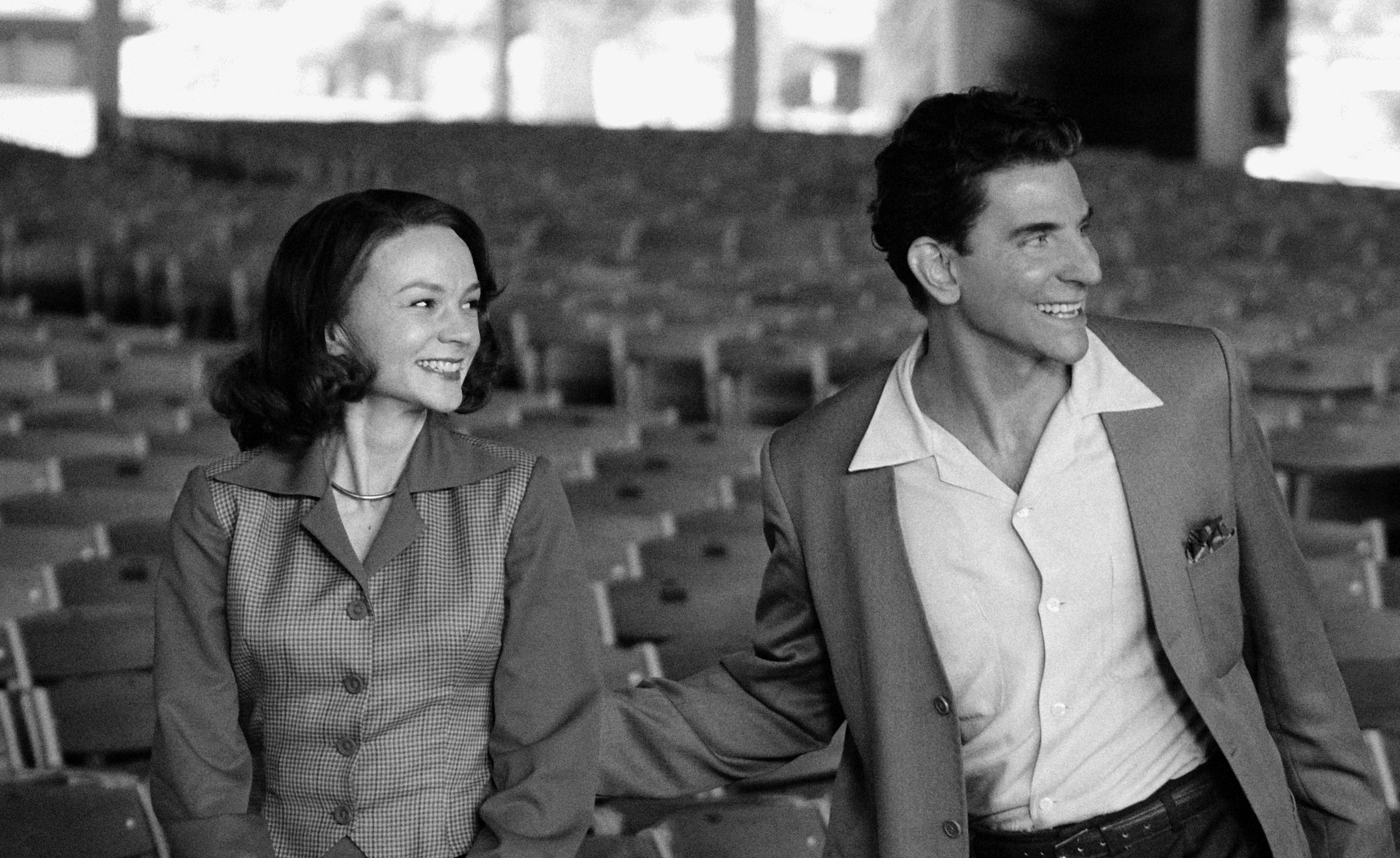Film Review: ‘Maestro’
Late Monday night (Oct. 2), the majestic sounds of the symphony ricocheted across the newly renovated Geffen Hall at Lincoln Center. Instead of those sounds coming from the Philharmonic, they spawned from the soundtrack to the gorgeous images of Bradley Cooper’s Maestro. It was only fitting that the film’s North American premiere — as well as the kickoff slate to the New York Film Festival — should take place in the same hall that Leonard Bernstein himself christened back in 1962 during his time as conductor of the New York Philharmonic. This fact, or feeling even, was not lost on the sold-out crowd, nor was it lost on Bernstein’s own children who were also in attendance.
The film spans Bernstein’s life, beginning when he was a young man in his twenties, and voyaging all the way through his final years. Maestro fondly showcases Bernstein’s brilliance, such as a fantastic scene near the start where we see his ascension through a ninth-hour call to conduct the Philharmonic when the lead conductor is sick — at age 25 no less. However, the central story of the film is Bernstein’s passionate yet complex love story with his wife, Felicia Montealegre (Carey Mulligan). In Montealegre, Bernstein finds true love; nonetheless, the film tracks the ways in which their love suffers the trials of both his time-consuming pursuits of musical excellence and bisexuality. Mulligan plays Montealegre’s subtle grace and burden to perfection. She clearly loves him more than anything, but she eventually grows cold waiting in his growing shadow while he thoughtlessly pursues affairs with men. Mulligan’s performance in the film is a heart-wrenching standout, and I would not be shocked to see her showered in accolades come this awards season. Some, myself included, might leave the theater (or your couch once it arrives on Netflix in late December) wishing there was more time dedicated to showing Bernstein’s grand achievements. Regardless, none will leave dissatisfied — a testament to the strength of the love story at the film’s core, and the brilliance of all the participants in its making.
Before the screening began, a man who served as a liaison between Cooper and the Philharmonic during pre-production spoke about the director’s dedication to crafting Maestro. He spoke of how Cooper would come to as many performances as he was able to, and simply study the conductor, the orchestra, and the evocative nature of the connection between the two. Cooper’s thoroughness in his preparation for the film is felt in each and every frame. The nine-time Academy Award nominee is magnificent as Bernstein, and the audience could not help but be drawn to the maestro’s magnetic personality when he had a glimmer in his eye, nor feel tortured by his painful mistakes.
Equally, if not more, impressive as his performance in front of the camera, is Cooper’s work behind it. Anyone who saw A Star is Born (2018) knows that Cooper is no slouch as a director, but Maestro feels like something special. Between almost magical scene-to-scene transitions that reflect Bernstein’s fantastical view of life, to the deft placement of the camera — such as the scene in which Bernstein and Montealegre first meet and talk by a window which both traps them in a frame together, yet feels increasingly romantic as their chemistry builds — Cooper has clearly fine-tuned his craft even more in the years since his team-up with Lady Gaga. That Cooper also co-wrote the film makes his imprint all the more personal and impressive.
Netflix
Finally, I can’t speak about Maestro without addressing its most viral aspect: Cooper’s prosthetic nose. I was always a little dismissive of the “Jewface” concerns, but after watching the movie I have all the more reason to shut them down. Now, I am a Jewish man myself, and I wholeheartedly believe in fighting antisemitism when it arises. I understand why people were so upset based on the picture of a single frame from the trailer which spurred heated conversations about how offensively large Bernstein’s nose appeared to be. However, that’s all it was: a single frame from a trailer in which the angle momentarily makes the nose appear large. For the rest of the film, you would hardly ever notice. Yes, Bernstein’s nose might be larger than the average person’s, but when you watch the film you simply see Bernstein in every frame — and as a Jewish man who would say something if there was anything to be said, I can safely say there simply is not. I sincerely hope that once the film is released to the general public this controversy can blow over, because all it would do is distract from a truly remarkable achievement in filmmaking that celebrates one of the great Jewish artists of the 20th century and maybe ever.
This movie is a must-see. It is beautiful, heartbreaking, inspiring, and thoroughly entertaining. If my grandmother can sit through a screening of it — which did not let out until just past midnight — and not be bored once, you can too. And please, if you have any thought of doing so at all, see Maestro in a theater, the music alone will be worth it.
Maestro will be released in select theaters on November 22 and will hit Netflix on December 20.
